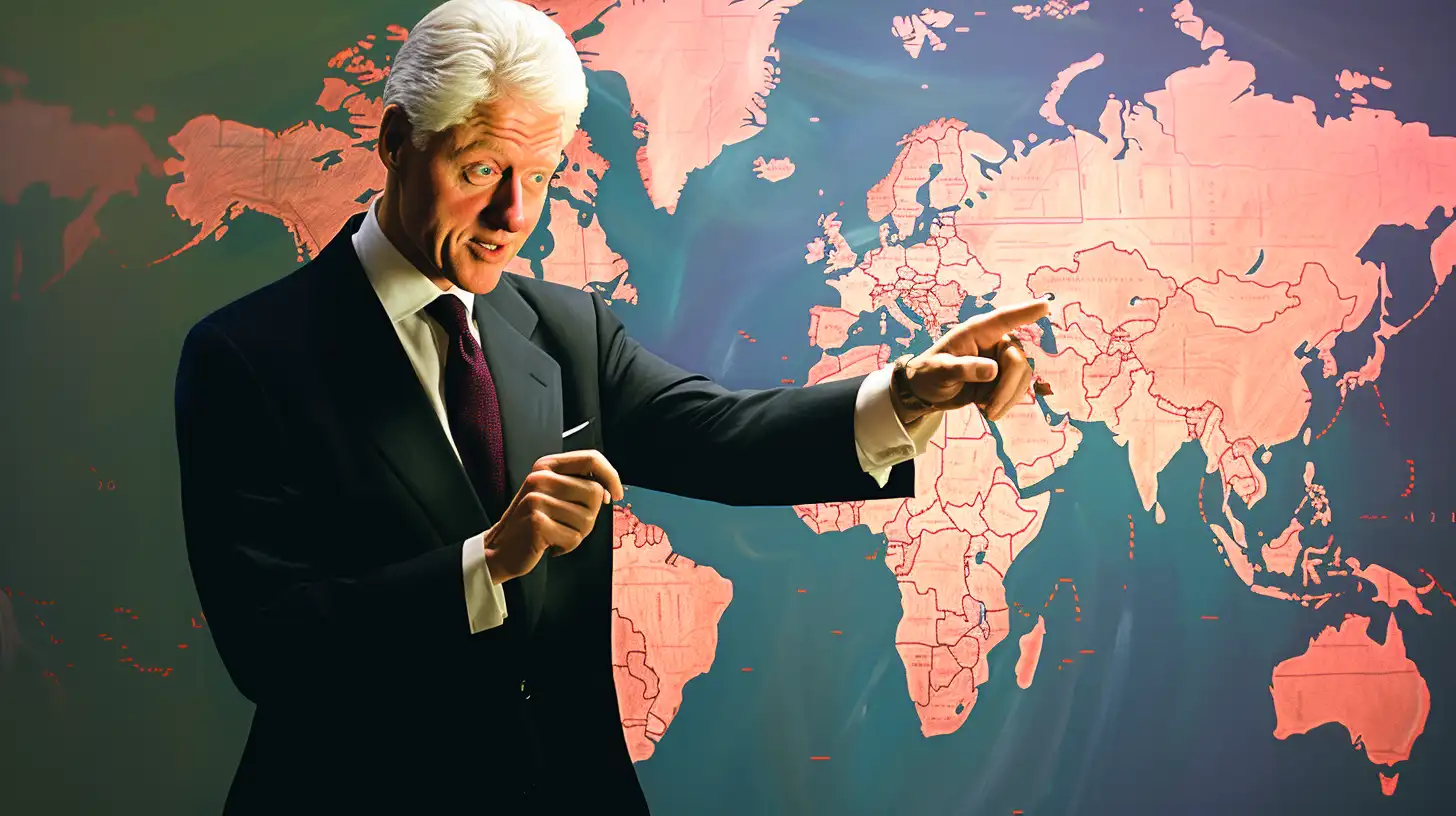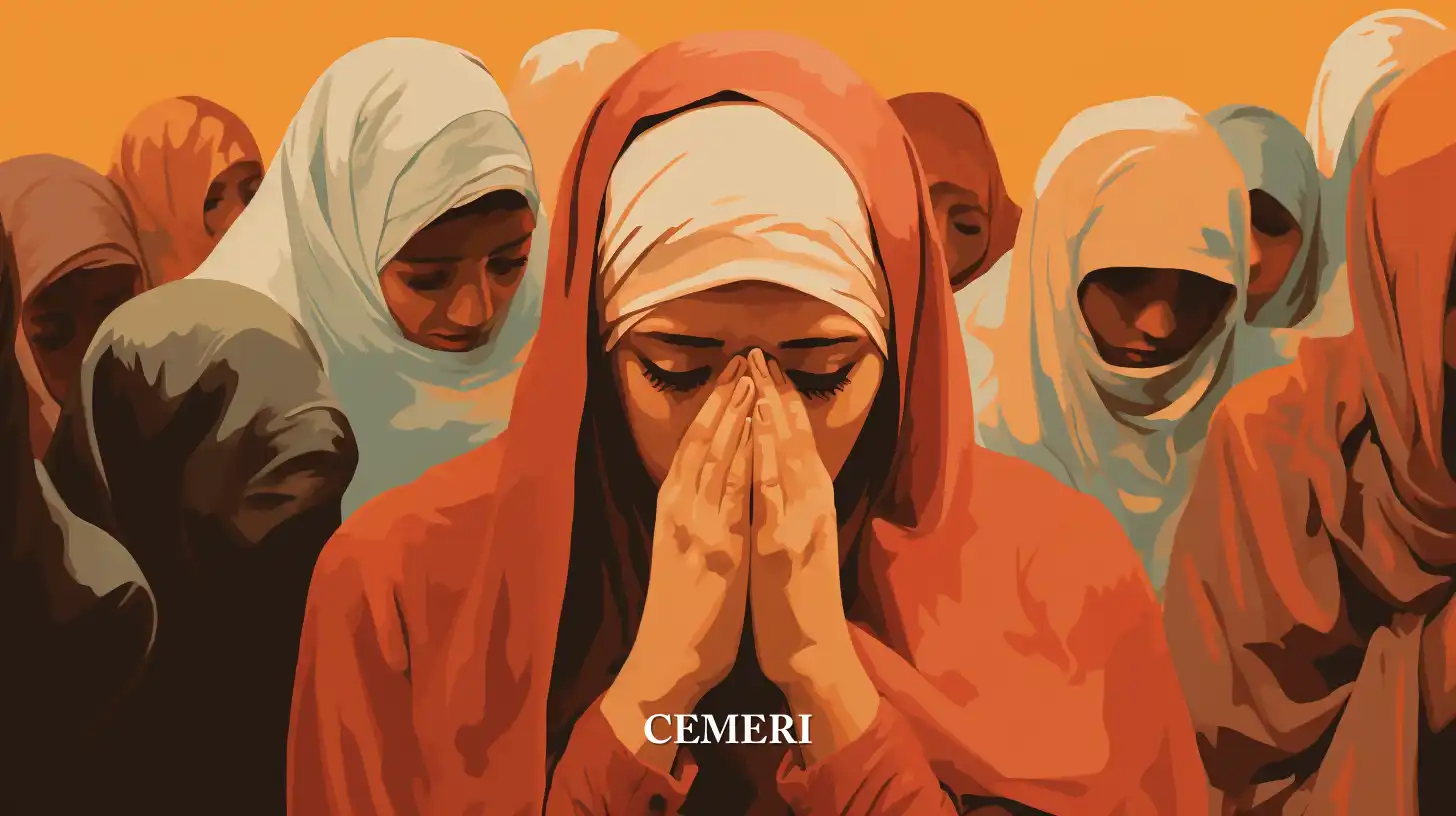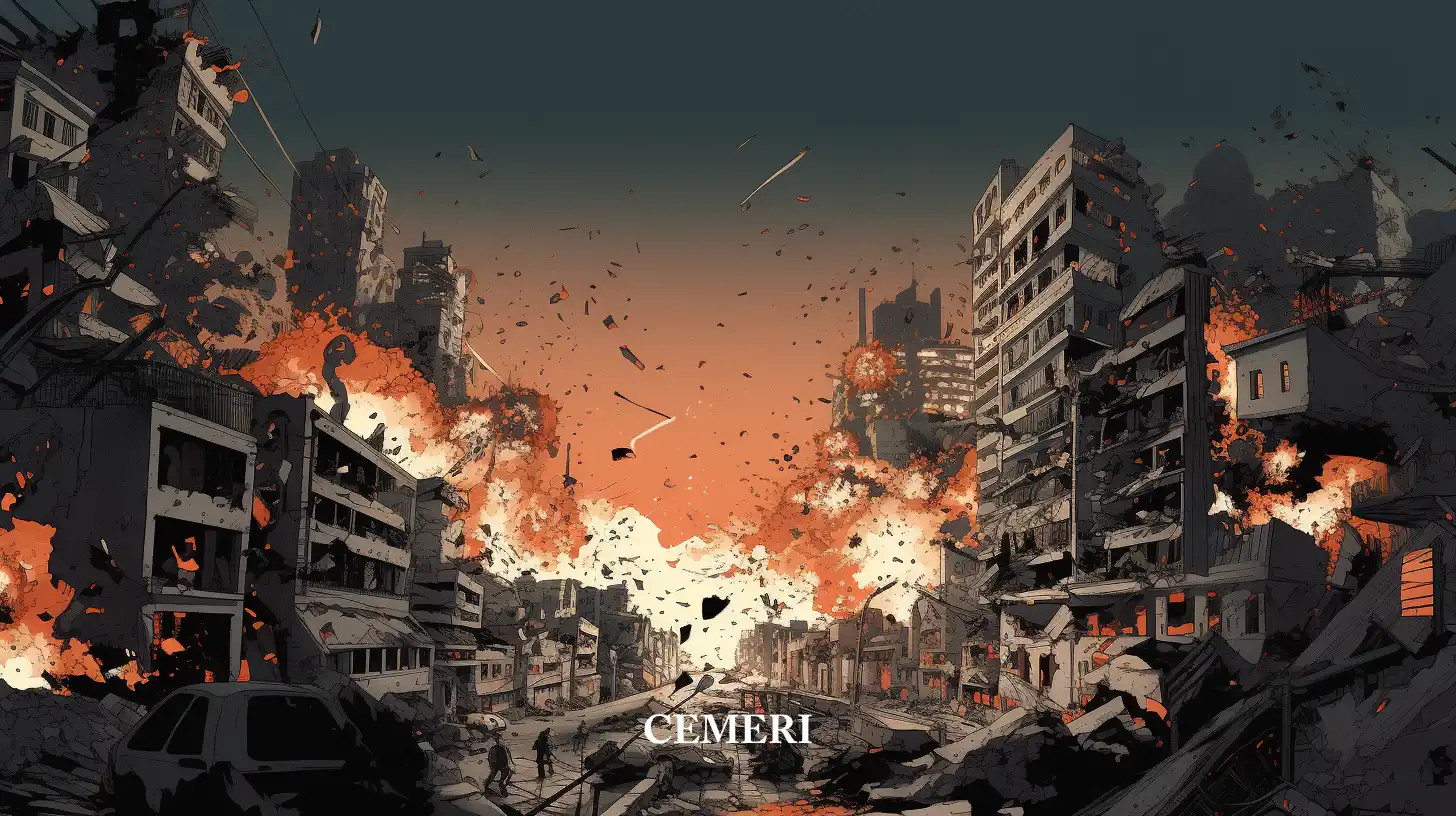Encyclopedia
Paulina Villegas
What is a Rogue State?
- A rogue state is a country that has stood out for being dangerous to the international community.

From North Korea to Iran, there are States whose international fame has been forged under the label of *Rogue States *or, as they are better known, Rogue States. But what has led countries like Libya, Iran, Russia, Syria or Iraq to be classified under this label?"
Rogue States are countries that have stood out for being dangerous nations for the dynamism of the international community and the establishment of international relations. These are countries that challenge the status quo through systematic violations of international standards related to fundamental Human Rights; such as the fight against gender discrimination, towards minority groups, ethnic communities, among others.
This category of States has no limits when it comes to using violence, because since they are countries that regularly violate Human Rights and international norms, the probability that they will challenge other state actors in the international system with the use of Weapons of Destruction Massive (ADM), it is high.
On the other hand, according to experts from the research department of Columbia University; these nations do not react in predictable ways to intimidation and deterrence; therefore, maintaining special treatment and pressure from the international community is essential. The risk of not controlling this type of country would result in phenomena such as territorial disputes, destabilization of regions of the world, and even; wars.
To understand the application and cases, it is necessary to consider the era of the Cold War, since it is a conceptualization that was born as a result of precepts of the foreign policy of the United States to designate regimes that used unconventional mechanisms; such as terrorism, with the goal of deterring State policies and achieving objectives linked to national precepts.
Likewise, it is necessary to return to precepts proposed by the security dilemma based on neorealism, which analyzes the behavior of some States of the system in the field of war and peace studies. To this end, this theory proposes two types of key actors to understand the world order and how the power relations and coexistence of the system change.
Based on the categorization proposed by Arnold Wolfers, on the one hand there are the status quo States; those that shape the system through a series of national values to such a degree that they influence at a regional and even global level. These States directly interfere in the behavior of the international community and seek to maintain a world order through a series of values; as is democracy. Currently, the United States and much of Europe are considered key states for international relations, thus highlighting their role as status quo, since through a series of liberal institutions and doctrines, they have shaped the world as it is known today.
On the other hand, we have the revisionist States; those who challenge the order of the system. The main objective of this type of State is to break with the paradigms of what is considered correct, thus seeking a different vision and order, driven above all by communist ideals. Over the years they have been considered nations that direct their actions based on desires for conquest, territorial annexations and the use of violence.
Finally, it is crucial to highlight that, although this theory had its origins in the Cold War era, in a context in which, as a result of the struggle between powers and ideals, capitalism, democracy and neoliberalism were categorized as universally accepted values, their influence has endured to this day. This conceptualization refers to a variety of nations characterized by their propensity for violence and, for the most part, with an inclination towards communist systems.
But what does this have to do with the Rogue States?
The importance of the security dilemma and categorization of status quo and revisionist States lies in the fact that from this, the mistrust and uncertainty that exists internationally among their state actors can be mitigated; and on the other hand and of great importance to highlight, to understand the behavior of Rogue States, it is necessary to look at what the conceptualization of revisionist States proposes; those who challenge the system and seek to modify the world order through unconventional mechanisms as well as the use of force. In short, revisionist states and rogue states are the counterpart.
To delve deeper into the topic, two cases are presented at the regional and international level. Various statistics offer a different classification, where Venezuela is considered a rogue state. Although it is true that it presents certain features, such as non-compliance with international regulations on Human Rights, the main characteristic of these States lies in the exercise of violence. Furthermore, hypothetically, by seeking to obtain greater power through the use of unconventional tools, they maintain a national interest in the annexation of territories, following a pattern that has been observed in countries like Russia since tsarist times.
Venezuela has been labeled a rogue state, largely due to former US President Donald Trump's claims before the United Nations Assembly. Trump highlighted a characteristic characteristic of revisionist states: being a communist country that challenges order in the Latin American region. This nation also faces challenges such as an economic collapse, security weaknesses due to drug trafficking, and serious violations of the fundamental rights of its population. However, it is important to note that these characteristics do not encompass all those that are characteristic of rogue states.
Under the same premise, a more suitable country for categorization would be Iraq, one of the most controversial cases at the beginning of the 21st century. Cradle of various ancient civilizations, from the Sumerians to the Babylonians, Iraq was once one of the most multicultural and prosperous territories in the Western Asia region, however, as a result of the oppressive dictatorship of Saddam Hussein, currently Iraq It is one of the most threatening rogue states in the international arena.
We must not forget the decade of the 90s, after having invaded the territory of Kuwait with the objectives of annexation, Iraq was accused by the international community of having developed Weapons of Mass Destruction, in response to this, the United Nations Security Council approved a preventive intervention in Iraqi territory, thus dealing with a nation characterized by inclination towards annexation of territories, non-compliance with international regulations and severe systematic violations of Universal Human Rights.
Taking the above into account, it is highlighted that Iraq's adverse behavior, based on the use of chemical and presumably nuclear weapons, destabilized the Persian Gulf region. Finally, it is important to specify the massive exterminations of thousands of Kurds and Shiite Muslims through the use of chemical weapons as an emblem of the Baath party, which it should be noted are prohibited and regulated by International Law. Iraq, a nation that has defined its role within the international sphere under precepts of violence and unpredictable behavior, has by far earned the category of a rogue state.
Rogue States A Westernized Concept?
It is not denied that the connotation of this type of State is negative; especially considering that it is a term coined during the Cold War era.
From this, a phenomenon emerged that unleashed a bipolar struggle of ideals, precepts and political and economic models. Standing out among these elements, an arms race arose that, under the amalgamation of these forces, gave rise to a concept intended to categorize States that would represent a threat to the international community and world peace. The question is, are they really not more so for the West?
The declaration of global war against terrorism adopted by the United States under the mandate of former President George Bush, meant a reordering of the international agenda, and that included a categorization for certain States that were considered a threat for various reasons; alleged support for terrorism and promotion of enclaves of non-governmental groups linked to it, thus classifying them as the famous “Axis of Evil.” This is a group made up of six States; Iraq, Iran, North Korea and later included Libya, Syria and Cuba on the list, some of which would become considered rogue states, due to their high probability of developing weapons of mass destruction; a threat to international peace.
Although the majority of the States on this list present a high range of non-compliance with international regulations, we must not leave aside a crucial element; the distant relationship with the West. On the other hand, it is no coincidence that there are various cases where the permanence of communist governments would mean an “imbalance of the international system” under the present theory and various discourses; or, they are regimes that are required to go through a profound process of democratization, as was the case in Afghanistan at the time.
What is certain is that whether it is a democratic or communist government, it is important to consider the Rogue States category in order to establish international policies that allow maintaining greater dynamics in international relations, promoting order within the system, and mitigate the exercise of war to a greater extent.
Sources
1. Blasco, E. (2017, 26 de septiembre). Trump eleva a Venezuela a la categoría de «Estado canalla». Diario ABC. https://www.abc.es/internacional/abci-trump-eleva-venezuela-categoria-rogue-state-201709260104_noticia.html
2. Henriksen, T. H. (2012, 7 de febrero). Iraq: Quintessential Rogue State. SpringerLink. https://link.springer.com/chapter/10.1057/9781137006400_3
3. Mitchell, Sara McLaughlin, and Peter F. Trumbore. “Rogue States and Territorial Disputes.” Conflict Management and Peace Science 31, no. 3 (2014): 323–39. http://www.jstor.org/stable/26271366.
4. Noragueda, C. (2016, 3 de abril). A qué países se considera "Estados canallas". Hipertextual. https://hipertextual.com/2016/04/estados-canallas
5. Rubin, B. (1999b). MERIA: U.S. Foreign Policy and Rogue States. CIAO: Columbia International Affairs Online. https://ciaotest.cc.columbia.edu/olj/meria/meria99_rub02.html
6. Terradas, N. (2009). El dilema de seguridad y su importancia para el estudio de las relaciones internacionales | Letras Internacionales. Sistema de revistas y publicaciones de la Universidad ORT Uruguay. https://revistas.ort.edu.uy/letras-internacionales/article/view/1627
7. Wilson Center. (2011, 19 de septiembre). "Rogue States" and the United States: A Historical Perspective. https://www.wilsoncenter.org/event/rogue-states-and-the-united-states-historical-perspective
8. Wolfers, Arnold. “THE BALANCE OF POWER IN THEORY AND PRACTICE.” Naval War College Review 11, no. 5 (1959): 1–20. http://www.jstor.org/stable/45139621.

